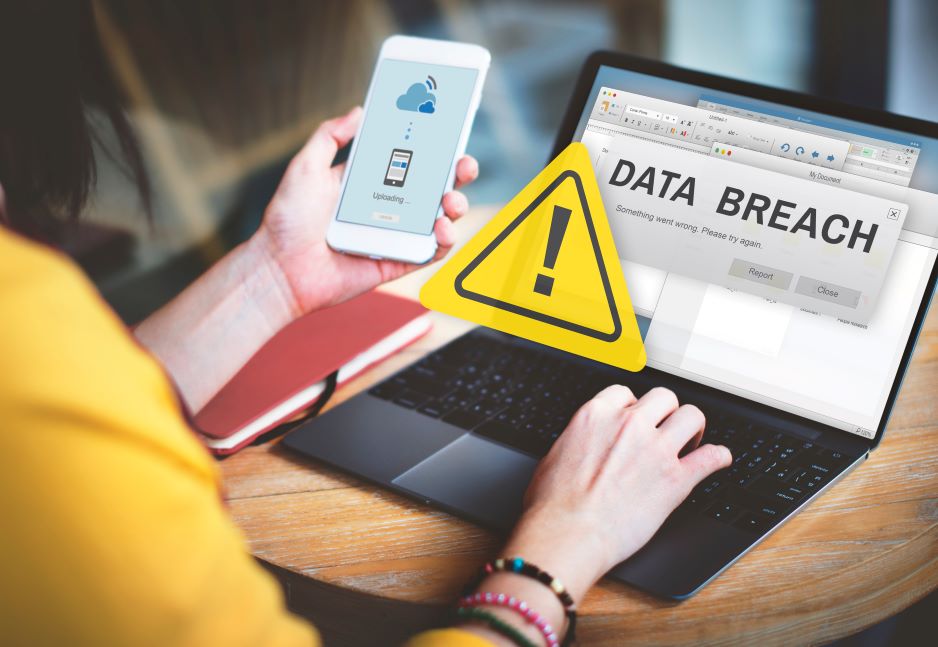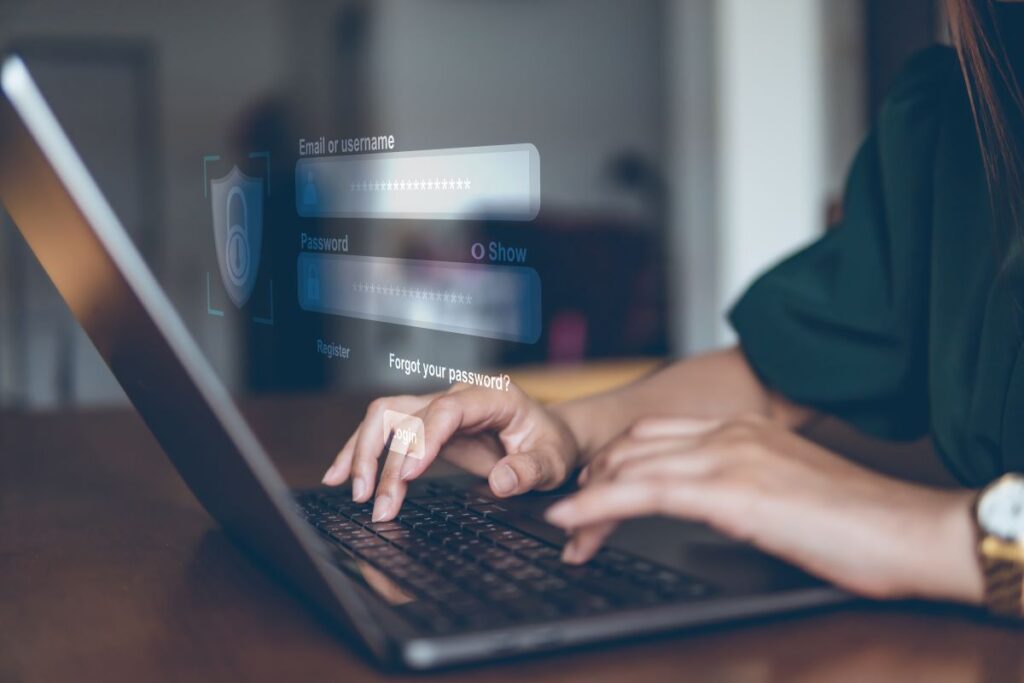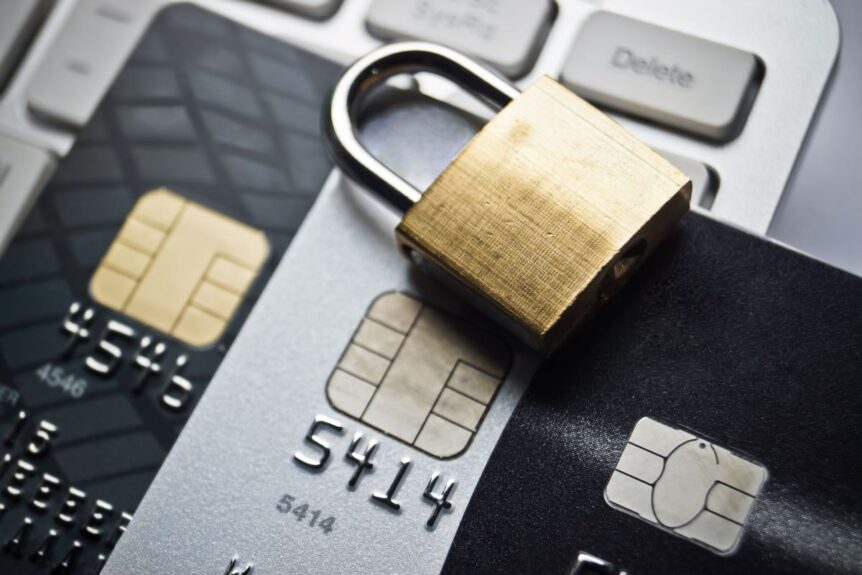Table of Contents
- Understanding Cyber Threats
- Importance of Cyber Security for Financial Information
- Best Practices for Protecting Financial Data
- Protecting Personal Devices
- Educating Family Members
- Keep Your Money Safe with Citizen State Bank
Every year, the risk of cyber security threats continues to grow. In 2023, there were over 2,300 cyber attacks in the US, with more than 300 million victims of these scams. By 2028, it’s predicted that cybercrime will cost the country nearly $2 trillion.
With October being Cybersecurity Awareness Month, we’re here to offer advice and guidance on the financial cyber security best practices you should be following to keep your personal information safe and prevent cyber threats from impacting your life. Our bank data security tips could be what stops you becoming a victim.
Understanding Cyber Threats
Phishing
One of the most common approaches that criminals take to steal your information are phishing scams. This is where individuals are tricked into providing sensitive, private details by criminals pretending to be a trustworthy source like a government agency or bank.
In many cases, an email is sent that looks official, with a link included for the recipient to click on. From there, users will be taken to a fake website that replicates the real site, which may prompt them to enter login or payment information. The criminals will then steal this information to exploit the user.
Understanding what phishing scams are and what they can look like is one of the most important means of preventing identity theft.
Malware
You’ve likely heard of alternative names for this type of cybercrime—viruses, spyware, ransomware. Otherwise known as malware, this is malicious software that’s designed to cause maximum damage on devices such as phones or computers to steal information.
Many financial data breaches have occurred as a result of malware, where fake software has been downloaded and run in the background without users knowing. These are often combined with phishing scams, which is how the software is downloaded onto the device initially.
Identity Theft
Using someone’s personal information to commit fraud, without their knowledge, is a significant and growing problem. Financial, criminal, and even medical identity theft can all happen without you becoming aware much later.

Importance of Cyber Security for Financial Information
Although any type of personal identity information is at risk, financial details are particularly valuable for cyber criminals. Once this information becomes accessible to criminals, they can open new bank accounts or credit cards in your name, or even loans that could negatively impact your credit history.
They can also access any money that you currently have in your bank accounts and, in some cases, completely clear your accounts and leave you with nothing. This is a distressing situation to find yourself in. If not identified and dealt with quickly, you could be dealing with long term impacts such as financial loss, credit damage, and additional identity theft.
Best Practices for Protecting Your Financial Information
No matter what type of account you have, identity theft prevention best practices should be followed as much as possible. Use strong passwords for all of your logins, even accounts where you feel like you have little information to lose like social media accounts. Create strong, unique passwords for every login you have. Nowadays, this could be hundreds of accounts, so consider using a password manager to help you better organize your details and keep them safe.
You should also look into implementing two-factor authentication, particularly for financial accounts. This is where you need multiple pieces of information to login, such as a password and one-time text code, or biometric information like fingerprints or facial recognition. Most banking cybersecurity experts strongly recommend this, as it makes it much harder for criminals to access your details without additional information.
Whenever you need to access the internet when you’re away from home, particularly if you’re using public WiFi, you should try to use a virtual private network, or VPN, to connect. This makes your connection more secure by encrypting your data. If possible, try not to access your financial details while on public WiFi, even if using a VPN. If you must, try connecting via the app on your phone and turn off your WiFi settings so that the connection is being run through your phone network instead.

Protecting Personal Devices
Your personal devices are a gateway to everything about you, which is helpful when you’re trying to access information quickly but also means that cybercriminals have specific targets for trying to steal those details. No matter what type of device you’re using, always install the most up-to-date version of the software or operating system. These systems are the foundation of your device, and developers will release updates with security patches that can keep you safe. Without these updates, criminals could exploit vulnerabilities in the system to access your information.
You should also consider using anti-virus software on your devices to protect your information. This is an essential bank fraud prevention method, as this can catch malware and even prevent it from being downloaded on your system before it can take control of your device.
Finally, don’t forget about the physical security of your devices. Use locks and passcodes to prevent any unauthorized access, and never leave your device unattended in public or at work. Use secure storage solutions for devices like laptops when you take them out of your home or office, especially if you need to leave them somewhere for even a short amount of time.
Educating Family Members
Keeping your family members, particularly seniors, updated on the latest cybersecurity threats is essential for helping protect their money and identity. These individuals are often a prime target for cybercriminals who are ready to exploit their possible lack of digital knowledge and vulnerability.
Help them protect their accounts with two-factor authentication and strong passwords, along with giving them details of what to look out for when they receive emails, texts, or calls. It’s important that, if they suspect something, they report it to you, their bank, or even local law enforcement before they take any action.
If they’re concerned about possible identity theft, it may be helpful to designate someone in the family or a trusted close friend to monitor their accounts and become their financial support person. This means that there’s always multiple people reviewing accounts and communication, which can be beneficial when trying to prevent cybercrime.

Keep Your Money Safe With Banking Cybersecurity Awareness
With cybercriminals becoming more sophisticated every day, ensuring that you and your loved ones are aware of how they operate is essential for keeping your finances and identity safe. Stay informed on the latest in cybersecurity, while also monitoring your accounts frequently for any suspicious activity.
At Citizens State Bank, we’re committed to keeping your money safe and helping you understand the possible dangers of cybercrime. Contact our team today if you have any concerns or you’re looking to open a new checking or savings account.

